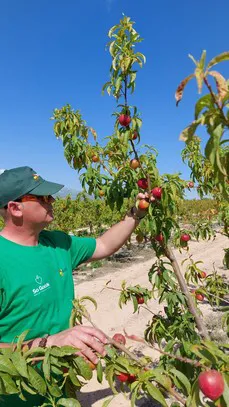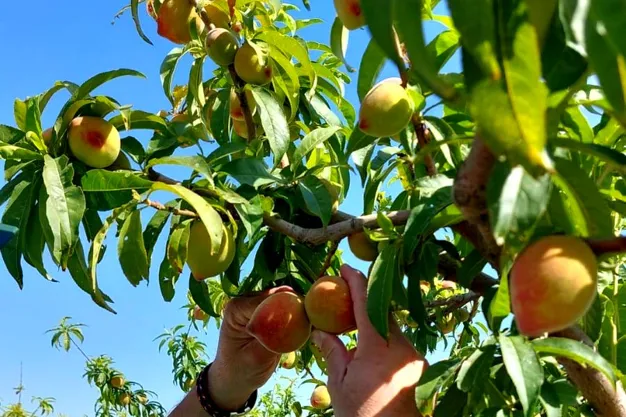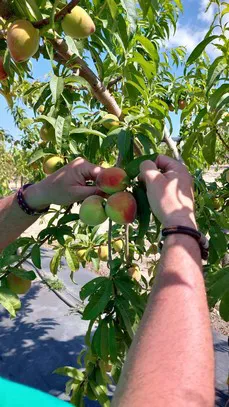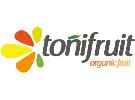In just a few weeks, the first organic stone fruits produced in the Region of Murcia will start arriving to all European markets. "Murcia and Seville are the first production areas in the entire Mediterranean, and this year the campaign is starting a week earlier, so consumers will be able to enjoy these magnificent fruits sooner, as summer also seems to be arriving early. Moreover, this early fruit also has the quality that our customers from all over Europe are expecting," says Juan Antonio Martínez Rubio, manager of Toñifruit. "And we are delivering the varieties that are currently most in demand by the market."
 "Regarding apricots, we will start at the end of April with the early variety Cebas Red; an improved variety with an appealing red flesh, which was developed at the Murcian research center Cebas, part of the CSIC. We will continue with the Mirlo Naranja and the Flopria, and we will end the campaign with another red variety, the Lady Cot, with which we'll be able to continue until July thanks to its good post-harvest shelf-life."
"Regarding apricots, we will start at the end of April with the early variety Cebas Red; an improved variety with an appealing red flesh, which was developed at the Murcian research center Cebas, part of the CSIC. We will continue with the Mirlo Naranja and the Flopria, and we will end the campaign with another red variety, the Lady Cot, with which we'll be able to continue until July thanks to its good post-harvest shelf-life."
"We will also start with our organic peaches at the end of April, with the Astoria variety, followed in May by the Pompadour and the Artemis, and we will finish in June with the Carla variety, a late peach with a superior size and a very intense flavor."
"In nectarines, we will start at the end of this month with the Flariba variety, followed by the Patagonia, the Garcima and the Copacabana, with which we will cover all of May and part of June."
"Lastly, there is also the paraguayo, a stone fruit native to Murcia, which also has the largest production in the Mediterranean. This fruit has a very high Brix degree and a very intense flavor. We will start the organic campaign at the end of April/beginning of May with the earliest variety in the market, the Zodiac, and continue with the Carioca, Contessa and Babylone until practically the end of June, thereby achieving a significantly long marketing period."

The earlier start of the campaign this year is dispelling the fear of an overlap between Murcian stone fruit and that from the northern parts of Spain and Extremadura, like we saw last year. "Moreover, it is also appreciated by customers and supermarket chains, which will be able to have the fruit earlier," said Juan Antonio in Seville while visiting Toñifruit partners producing late-season oranges. "This fruit will also have a higher quality than usual."
"This ripe and sweet early-season fruit will ensure consumer satisfaction. Thus, we trust that the quality of this year's stone fruit will allow us to have a very successful campaign in terms of quantity and consumption."
Demeter is one of the certifications that allow specialized stores to remain competitive against large retailers in Germany
The forecasts are positive for these first peaches, nectarines, apricots and paraguayos, which will be marketed alongside the remaining citrus fruits, as there is still a good supply of late orange varieties, and the Verna lemon season will start soon. This fruit will reach not only the conventional market, but also the organic and the interesting niche of biodynamic fruit.
 "At Toñifruit, all our stone fruit production is organic, and a significant part of it also has the Bio Suisse and Demeter certifications, which guarantee extra quality and sustainability and help it stand out in the market."
"At Toñifruit, all our stone fruit production is organic, and a significant part of it also has the Bio Suisse and Demeter certifications, which guarantee extra quality and sustainability and help it stand out in the market."
"Producing stone fruit in biodynamic agriculture is very challenging, because it is a very technical crop and you have to be a true specialist and do things very well in order to succeed. But the effort is worth it, and our biodynamic fruit delivers very good results."
Germany, as the cradle of this form of agriculture, which has existed for a century this year, is the largest market for Demeter foods in Europe. It is also the one where Toñifruit ships the bulk of its production. "We work mostly with stores specialized in regenerative and biodynamic agriculture, which are the ones that most appreciate this certification, as their customers are also highly aware of issues regarding sustainability. Demeter is, in fact, one of the certifications that allow specialized stores to remain competitive against large retailers in Germany."
 For more information:
For more information:
Toñifruit
Parque empresarial Cabecicos Blancos
C/ Molino Grande, buzón 22
30892 Librilla. Murcia. Spain
Tel.: +34 968 071 056
info@tonifruit.com
https://tonifruit.com
